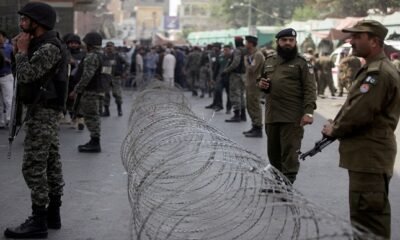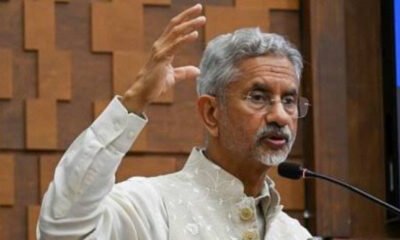International
Saudi Arabia bans death penalty for minors, after doing away with flogging
Ritu yadav.
Saudi Arabia has decreed an end to the death penalty for crimes committed by minors, after effectually abolishing floggings, according to a statement by a top official. As Amnesty International and Human Rights watch have bluntly criticized the kingdom, for its reluctance at putting an end to death penalty, particularly for crimes committed by minors.
The decision came after the judgment by the general commission for the Supreme Court to put an end to flogging and replacing it with jail time, fines or community service. It is the most awaited decision and an extension of the human rights reforms introduced under the direction of king Salman and direct supervision of crown prince Mohammed Bin Salman. They are seen as the force behind the kingdom’s loosening of restrictions and its pivoting away from the ultraconservative interpretations of Islamic law known as Wahhabism, which many in the country still closely adhere to.
The decree is expected to spare the lives of at least six men from the minority Shia community who are presently on death row. They were accused of taking part in anti-government protests during the Arab Spring uprisings, while they were under the age of 18.
The crown prince has sought to modernize the country, attract foreign investment and rehabilitate Saudi Arabia’s reputation globally. He’s also overseen a parallel crackdown on liberals, women’s rights activists, writers, moderate clerics and reformers
The October 2018 assassination of vocal critic Jamal Khashoggi inside the Saudi consulate in Istanbul, and the increased repression of dissidents at home, have overshadowed the prince’s pledge to reform the economy and society and drew sharp criticism internationally.
The kingdom has one of the world’s highest rates of execution, with suspects convicted of terrorism, homicide, rape, armed robbery and drug trafficking facing the death penalty.
The president of the Saudi government’s Human Rights Commission, Awwad Alawwad, confirmed the latest decision in a statement Sunday, saying it helps the kingdom establish “a more modern penal code and demonstrates the kingdom’s commitment to following through on key reforms.”
He said “more reforms will be coming,” and that the two decisions “reflect how Saudi Arabia is forging ahead in its realisation of critical human rights reforms even amid the hardship imposed by the COVID-19 pandemic.”
The decree expands on a previous order by King Salman issued in late 2018, which set a maximum 10-year prison term for minors in certain cases, except for crimes punishable by death. Now the 10-year maximum applies to all crimes by minors.
Saudi Arabia’s Supreme Court recently issued a directive to put an end to flogging as a form of punishment sometime in April, according to a document seen by The Associated Press.
Five years ago, prominent Saudi blogger Raif Badawi was given 50 lashes before hundreds of spectators in the metropolitan city of Jeddah.
As a result, outrage and condemnation took place internationally, including from many of Saudi Arabia’s Western allies. Badawi’s feet and hands were shackled during the flogging but his face was visible.
Badawi is currently serving a 10-year prison sentence and was ordered to pay more than USD 266,000 in fines on charges related to his criticism of Saudi Arabia’s powerful clerics on the liberal blog he founded.
Amnesty International and Human Rights Watch have long called on the kingdom to abolish the use of the death penalty, particularly for crimes committed by minors.
















